Engineers Day 2023: A shoutout to modern civil engineering marvels
Civil engineers are weighed by the materiality of their concerns. On Engineer's Day, we laud a profession that shapes, in concrete terms, the forms—and dreams—on a drawing board


The Large Hadron Collider (LHC) is the world"s largest and most powerful particle accelerator, a marvel of engineering that consists of a 27-km ring of superconducting magnets with several accelerating structures to boost the energy of the particles, such as protons, to cause collisions that produce massive particles, such as the Higgs boson or the top quark. Situated in Geneva, Switzerland, LHC hopes to find new particles that would explain, among other things, dark matter, one of the great enigmas of the Universe.
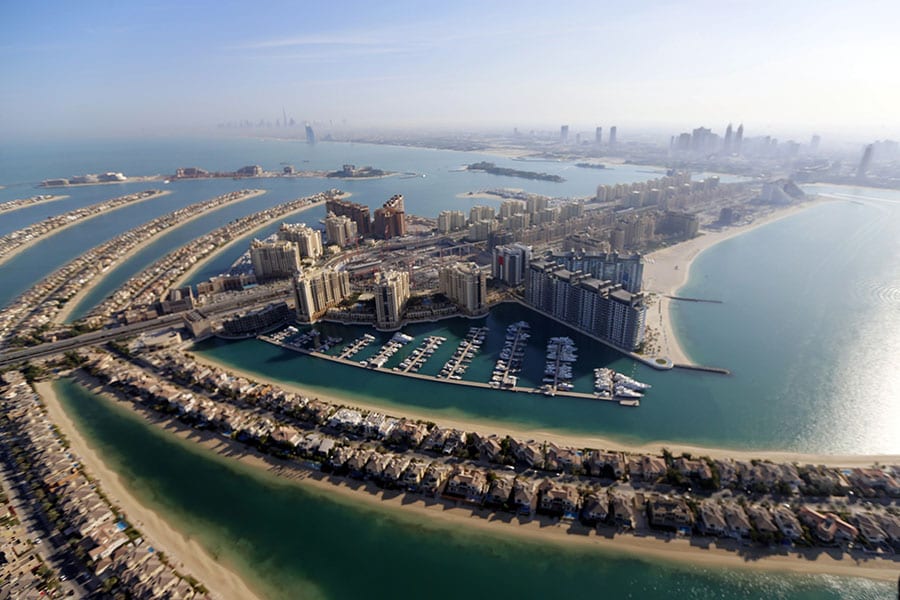 Image: Karim Sahib/Pool / Reuters
Image: Karim Sahib/Pool / Reuters
The world"s largest artificial island, Palm Jumeirah in Dubai, UAE, was built from piling up tons of sand and rock in the ocean. Workers dredged up more than 3 billion cubic feet of sand to build Palm Jumeirah, the first of the three islands that make up Palm Island. The archipelago is shaped like a palm with a trunk that stretches two kilometres, a crown made up of sixteen fronds and a surrounding crescent.
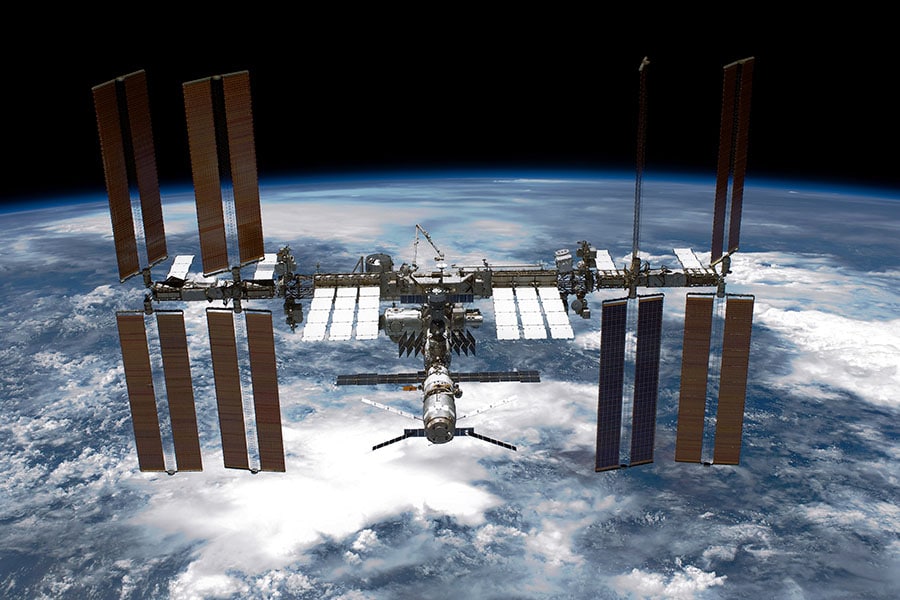 Image: NASA via Getty Images
Image: NASA via Getty Images
The International Space Station is a large, habitable space station that orbits the Earth at an altitude of approximately 408 km. A highly-lauded civil work in space, the ISS is the result of five space agencies—NASA, the European Space Agency, the Japanese Space Exploration Agency, the Russian Federal Space Agency, and the Canadian Space Agency—that worked together on its construction and operation.
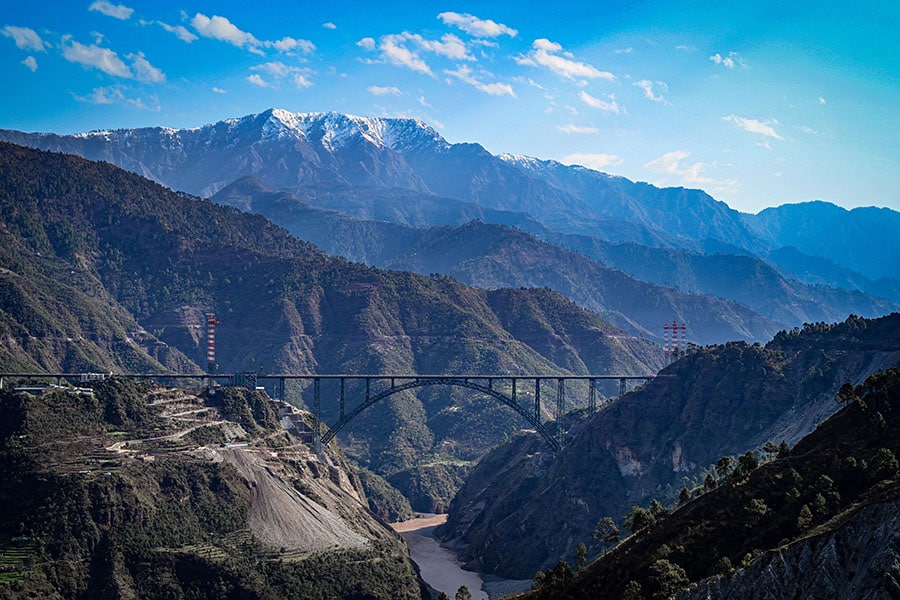 Image: Sanchit Khanna/Hindustan Times via Getty Images
Image: Sanchit Khanna/Hindustan Times via Getty Images
Located between Bakkal and Kauri in the Reasi district of Jammu and Kashmir in north India, the newly constructed Chenab Bridge is the tallest railway arch bridge in the world. Built over the Chenab River at a height of 359 metres, this bridge is arguably the biggest civil engineering challenge faced by any railway project in India"s recent history.
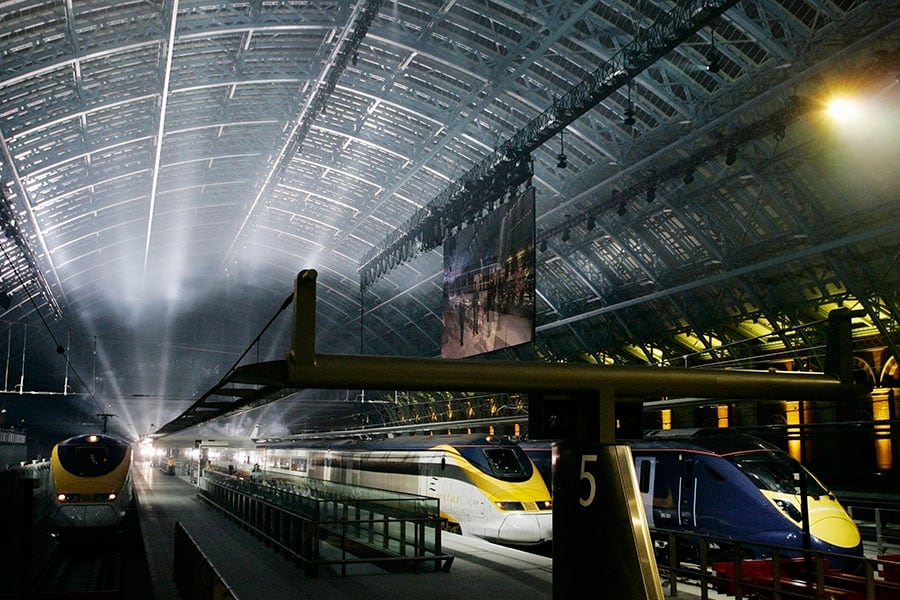 Image: Tim Graham/Getty Images
Image: Tim Graham/Getty Images
The Channel Tunnel, also known as the Chunnel, is a 32-mile underwater rail tunnel that connects Folkstone, England and Coquelles, France, underneath the English Channel. A modern engineering marvel, this tunnel serves the transportation needs of over seven million people a year, with trains that take twenty minutes to cross the channel.
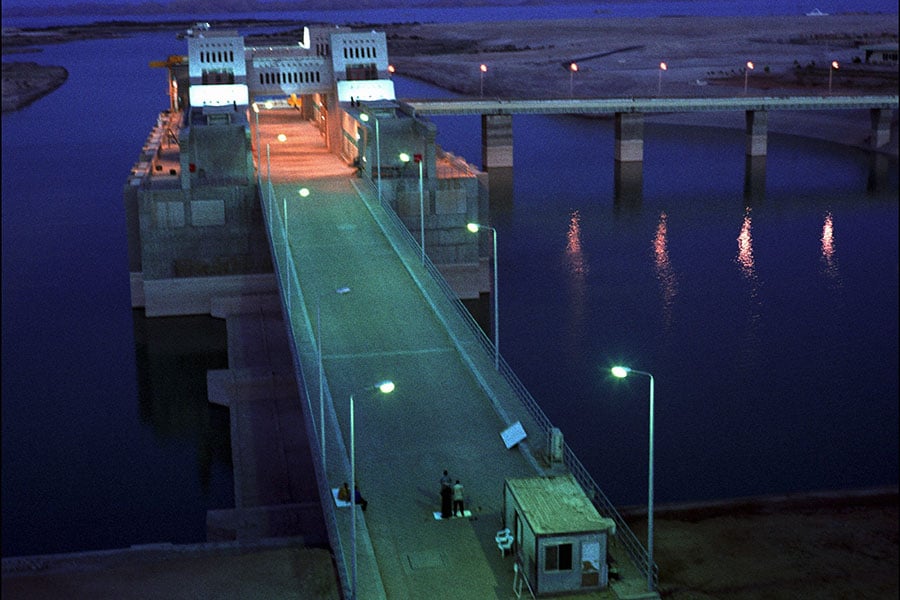 Image: Yves GELLIE/Gamma-Rapho via Getty Images
Image: Yves GELLIE/Gamma-Rapho via Getty Images
A view of Mubarak Pumping Station, the heart of Egypt"s ambitious irrigation system to reclaim half a million acres of desert. Considered an outstanding civil engineering achievement, the station pumps water from Lake Nasser through a canal system, transforming thousands of acres of desert into agricultural land. Since its start, it has created about 3 million jobs and attracted over 16 million people to the future towns.
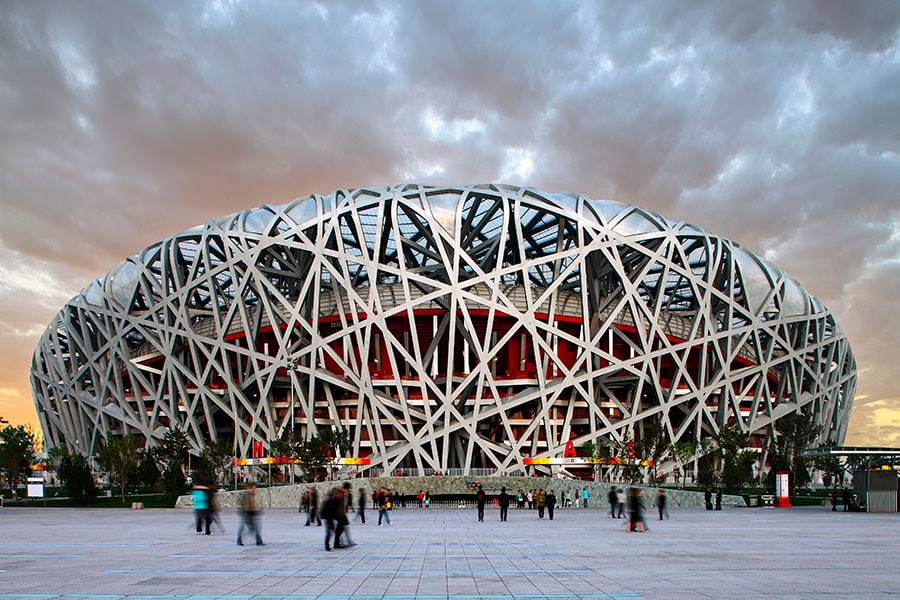 Image: View Pictures/Universal Images Group via Getty Images
Image: View Pictures/Universal Images Group via Getty Images
Also known as the "Bird"s Nest", the Beijing National Stadium is an astonishing 42,000-tonne structural engineering showpiece. Designed by Herzog & De Meuron, the iconic latticed steel frame demanded advanced methods of designing and detailing structural steel sections, keeping in mind the effects of thermal expansion on steel in a city where the temperature can range from over 30°C in the summer to -20°C in the winter
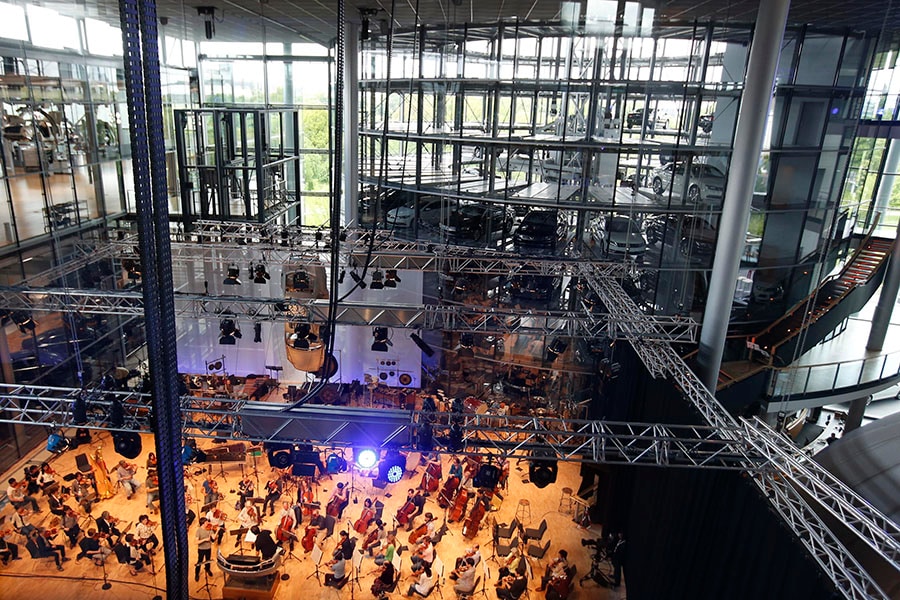 Image: Fabrizio Bensch / Reuters
Image: Fabrizio Bensch / Reuters
The German carmaker Volkswagen opened the "Die Glà¤serne Manufaktur" (the transparent factory) in Dresden to manufacture the luxury car Phaeton. The factory walls are made of 290,000 square feet of glass thus, the concept of transparent work activity is open to public view in the heart of the city, defying city planners who said manufacturing couldn"t exist side by side with urban culture and living.
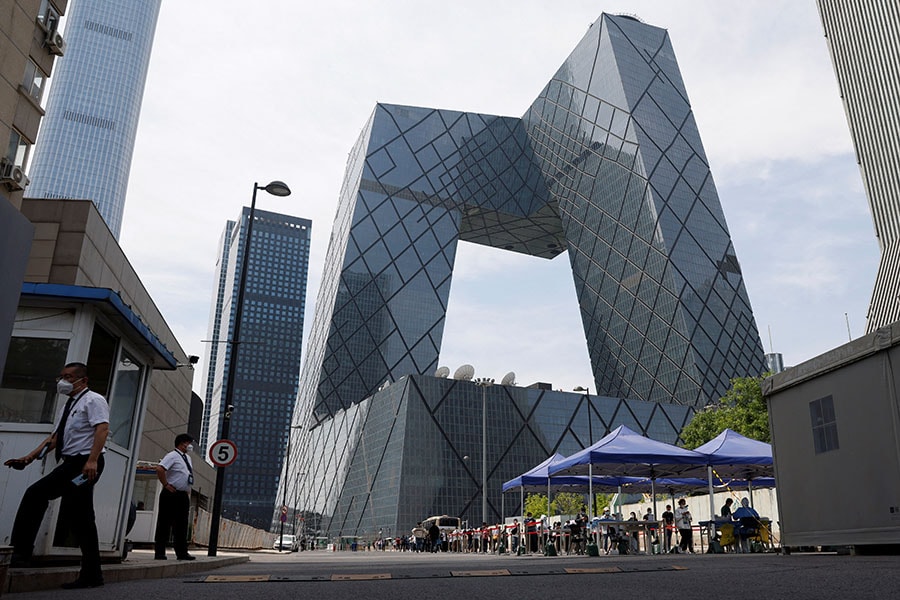 Image: Carlos Garcia Rawlins / Reuters
Image: Carlos Garcia Rawlins / Reuters
The headquarters of China Central TV looks like an MC Escher painting has come to life. The Dutch architectural firm OMA designed the building as "an alternative to the exhausted typology of the skyscraper", rejecting a traditional straight-backed tower in favour of a loop created by joining two leaning towers.
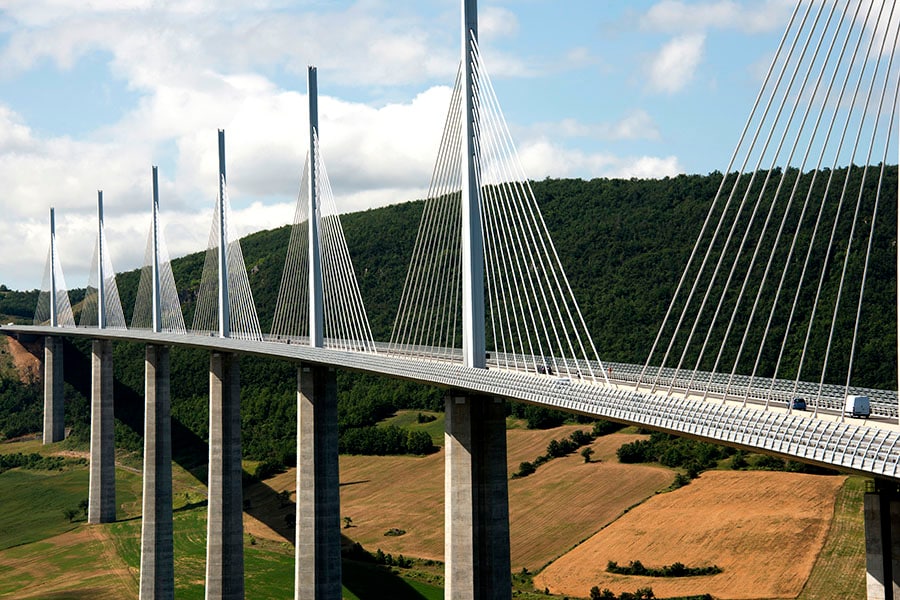 Image: Nik Wheeler/Corbis via Getty Images
Image: Nik Wheeler/Corbis via Getty Images
Millau Viaduct is the tallest cable-stayed road bridge in the world on the A75 autoroute between Paris and Montpellier over the River Tarn near Millau in Aveyro, France. The civil engineering firm Freyssinet carried forth a daring construction method, with the aerodynamic, slimline superstructure supported by 154 cables from the seven steel towers that rise to 87 metres above the road deck.
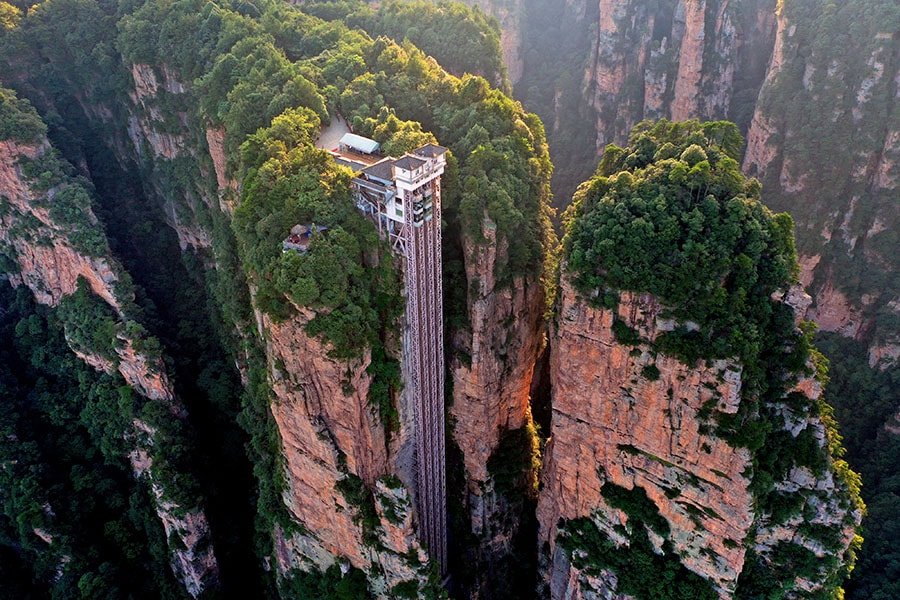 Image: Costfoto/Future Publishing via Getty Images
Image: Costfoto/Future Publishing via Getty Images
The Bailong Elevator, listed in the Guinness Book of World Records, is the highest and heaviest outdoor elevator in the Zhangjiajie National Park, China. This double-deck glass elevator, built onto the side of a vast cliff, has a carrying capacity of 4,900 kilograms, with 50 passengers travelling in each car. The total running length of the elevator shaft is 335 meters (1099 feet), of which the running length is 326 meters (1069 feet). The elevator offers visitors a spectacular view of the area"s karst monolith rock formations.
First Published: Sep 15, 2023, 17:44
Subscribe Now